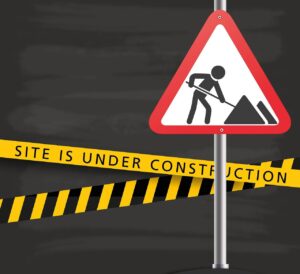Introduction
Have you ever wondered why some people charge €300 for a “website” while others ask for €3,000 (or even more)?
The truth is: there’s no fixed price. A website can be very inexpensive or a significant investment. The difference doesn’t just lie in the number of pages or the design, but above all in the value that site brings to your business.
Many entrepreneurs and professionals feel lost when requesting a quote: wildly different offers, confusion about what’s actually included, and the sense of not having the right tools to make an informed choice.
In this short guide, I’ll try to shed some light on the topic.
Why do prices vary so much?
A website isn’t a standard product like a phone or a printer. It’s a tailor-made project, and that’s why prices depend on several factors:
- Type of website: showcase site, e-commerce, blog, custom platform.
- Requested features: advanced contact forms, private areas, payment systems, multilingual setup, integrations with external software.
- Design: pre-built templates vs. fully customized graphics.
- SEO and performance: a fast, optimized site that’s ready to be found on Google requires extra technical work.
- Support and maintenance: quotes may or may not include updates, backups, and security.
👉 In short: what looks like the “same website” can actually hide days—or even weeks—of very different work.
Common price ranges
Here’s an indicative overview to help you understand where your project might fit:
- Basic / DIY site (€200–500)
- Built with online builders or standard themes.
- Works as a minimal presence, but it’s inflexible and not always professional.
- Professional showcase site (€800–2,000)
- Suitable for freelancers and small businesses.
- Polished design, optimized content, SEO-friendly structure.
- Includes pages like Home, About, Services, Contact, Blog.
- E-commerce (€1,500–5,000 and up)
- Sell products/services online with order and payment management.
- Requires more complex configurations and stronger security.
- Custom projects (from €5,000 upward)
- Tailored platforms, private areas, integrated management systems, web apps.
- Every feature is designed and developed specifically for the business.
How to evaluate a quote wisely
When you receive an offer, ask yourself:
- Does the site truly meet my business needs?
- Are security, backups, and support included?
- Will the site be fast, responsive, and SEO-optimized?
- Will I be able to update it easily on my own?
A good provider doesn’t just hand you a website—they help you turn it into a working business tool.
Conclusion: more than a cost, it’s an investment
A website isn’t just an expense to tick off the budget list. It’s a strategic investment.
If done well, it helps you:
- attract new clients,
- enhance your professional image,
- simplify processes and communication.
The key isn’t to spend more or less, but to invest in what your business really needs.
Your website should work for you 24/7—not just be a static showcase.




